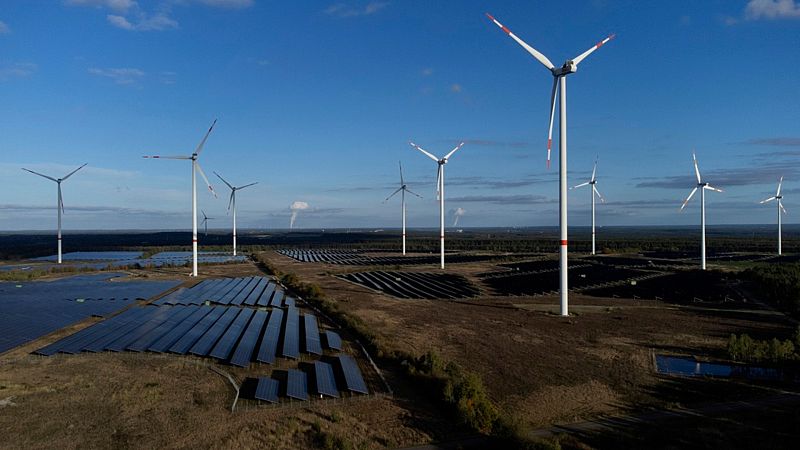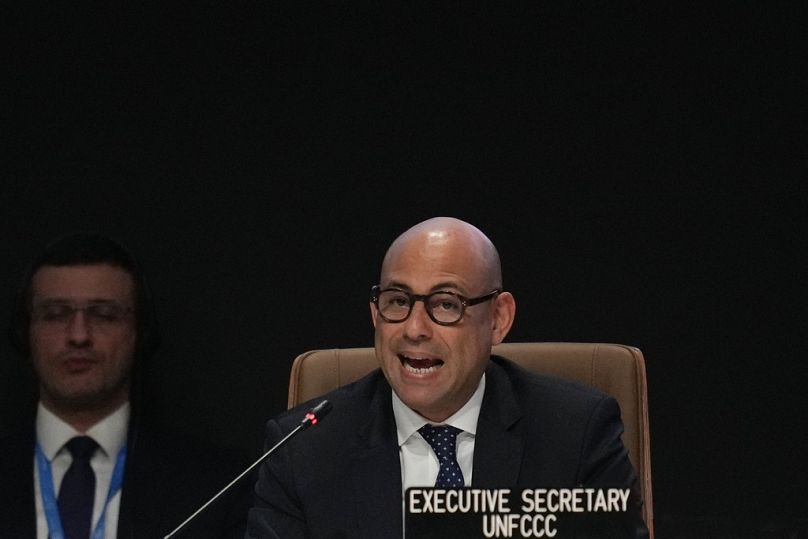‘Weak plans mean a bleak future’: Most countries miss deadline to submit new national climate plans

The deadline for countries to submit their latest national climate plans has passed and most big polluters have missed the mark.
Just 11 of the 195 parties that signed up to the Paris Agreement submitted theirs on time.
As part of a process started by the Paris Agreement these plans, known as Nationally Determined Contributions or NDCs, were due by 10 February. 187 nations have yet to hand theirs over including major polluters like India, Australia and the EU which submits for the whole bloc.
Just a handful, such as the UK and Brazil, managed to put their NDCs forward ahead of the deadline.
Now the UN has said countries should take "a bit more time" to ensure these plans are "first-rate". According to climate chief Simon Stiell, the real deadline is in September when the plans will be tallied up before COP30.
What happens if countries don’t submit their NDCs on time?
Signed in 2015, the Paris Agreement requires countries to put forward increasingly ambitious NDCs every five years. This deadline was 10 February at 11:59 pm in Germany, where the UN climate office.
There is no penalty for submitting beyond the deadline, however.
In a speech at the Instituto Rio Branco in Brazil this week, Stiell said that the quality, not timeliness, of these “crucial” plans should be the focus.
“Because these national plans are among the most important policy documents governments will produce this century, their quality should be the paramount consideration,” he said.
Stiell added that a vast majority of countries had indicated that they would submit their new NDCs this year with many taking the process “extremely seriously”.
“So taking a bit more time to ensure these plans are first-rate makes sense, properly outlining how they will contribute to this effort and therefore what rewards they will reap.”
Stiell said the UN needs to have them on its desk by September at the latest to include them in the NDC synthesis report due to be released before the COP30 climate talks in November. This year’s Brazilian leadership has signalled that national plans will be a priority at the UN climate conference.
“While most nations will not deliver their plans this month, it’s far better to have strong commitments later this year than rushed, weak ones now,” says David Waskow, international climate director for the World Resources Institute.
“Above all, new national climate commitments should be judged by how rapidly they cut emissions and better protect people from increasingly severe climate impacts.”
Why haven’t more countries submitted their national climate plans?
So far only around a dozen of the 195 countries that signed the Paris Agreement have filed their plans to cut emissions by 2035.
These new NDCs cover around 16 per cent of global emissions. Almost all of this is from the US which submitted its plan before the inauguration of President Donald Trump who has since begun the process of pulling the country out of the Paris Agreement.
The only other major emitters to submit their NDCs are Brazil, the United Kingdom and the United Arab Emirates.
New Zealand, Switzerland, Uruguay, Andorra, Ecuador, the Marshall Islands and Saint Lucia also got their plans in on time. Together they produce just 0.2 per cent of global emissions.
There are a few reasons why other nations missed the deadline.
“The last round of NDCs was delayed by a year due to the COVID pandemic, so countries have had only four years since then to come up with new plans,” Waskow explains. During this round, due in February 2020, just 48 countries had submitted by the end of the year with most others catching up by COP26 in 2021.
“Smaller developing nations also face capacity constraints as they have had to complete their biennial climate progress reports and are also meant to table new national adaptation plans this year.”
Waskow adds that countries should submit their plans before the UN General Assembly in September at the latest so the world can accurately assess where we stand before COP30 in Brazil.
“Leaders must not treat this process as a box-checking exercise. Weak plans mean a bleak future, plain and simple. 2025 is the year to step up."
Today


